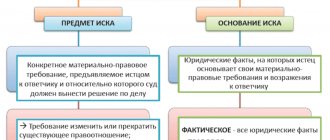Home » Buying and selling an apartment » How to leave a private home
2
You need to leave a private home in a variety of cases, from selling a home to simply moving to a new place of residence. How much more difficult is it to check out of a house compared to an apartment, what are the features and how can you de-register – read this article.
Is it possible to check out through the MFC?
Can. MFC (My Documents) is an organization that acts as an intermediary between people and government agencies. Its main advantage is that all services are collected in one place. There is no need to run around to different authorities. All documents can be submitted to the MFC and wait for processing to complete. The only drawback is that the procedure for the same discharge may take longer.
This happens because the MFC must first collect and check all the papers and only then send them to the Ministry of Internal Affairs. There, in turn, they also check the documents and make appropriate changes. Only after this the papers are sent to the MFC, where the applicant picks them up.
Extract through the passport office at the Criminal Code or Housing Office
An alternative option is to check out through the passport office. Such branches are located in management companies (management companies) or housing and maintenance offices (housing maintenance offices). All actions will be identical to contacting the MFC. The only difference is that you can only apply to those passport offices that include the house from which you plan to check out.
In some cases, contacting the passport office can be considered more convenient due to the absence of large queues, which are relevant for most MFC branches. On the other hand, the procedure for deregistration through a passport office may be somewhat longer, since employees of such a desk take papers to the Ministry of Internal Affairs much less often than they do to the MFC.
Without a trace
This procedure involves a personal appeal by the initiator of the discharge to the local branch of the migration service, which serves the private home. If a citizen checks out of the apartment, then he will have to contact the local housing office. Also, an alternative authority is the multifunctional center, but before going to the center’s branch, you need to clarify whether they work with the discharge of citizens, or whether this function is not specified in their official duties. In addition, it is possible to submit a remote application using the “My Documents” Internet portal, but you will still have to pick up the completed papers at the FMS office.
The discharge is carried out on the basis of the following principles:
- there is no need to obtain written consent for deregistration from the owner of the property or other persons who live on the square meters,
- the procedure is absolutely free, regardless of the authority whose services are used by the person being discharged,
- for citizens liable for military service, it is additionally necessary, before applying to the passport office, to put a stamp on deregistration at the local military registration and enlistment office.
So, in order for a person to be removed from the apartment register, it is necessary to submit the following documents and certificates:
- a statement on the basis of which, in fact, the extract is made (filled out on a regular sheet of A 4 format, but in the prescribed form),
- a civil passport, which must be fully valid (especially when it comes to timely insertion of photographs),
- house book, in which FMS employees display data on the deregistration of a person (without a house book, an extract occurs if the object of registration is an apartment),
- completed departure form in two copies.
As for the timing of consideration of the application, it depends on many factors. So, if deregistration occurs in person, then about three calendar days are allotted to complete the procedure. If minor children are involved in the discharge, this process may take more than two weeks. You also need to additionally take into account weekends and holidays, which are not taken into account when calculating the deadlines.
The question often arises whether it is possible to deregister with the involvement of third parties, without personal appearance. There is such a possibility. Thus, a citizen who wants to check out of housing must issue a notarized power of attorney for a specific person who will participate in the procedure. The power of attorney form provides for the possibility of performing only those functions that are related to the cancellation of registration.
Upon completion of the deregistration procedure without indicating a new official registration address, the person receives one of the copies of the departure sheet, which is needed to present to FMS employees when the need arises to re-register.
Is it possible to check out of a house without an owner, without an owner?
Can. The owner (owner) of the house is needed only for registration (registration), and then not always. You can check out without his presence. The only problem is that in order to register from a private home, you need to provide a house register. It may not be issued without the owner, or, if it is already kept by the owner, he may not agree to transfer such a document to his tenants who are leaving. There are no other reasons for his presence at the time of discharge.
Many owners still prefer to personally monitor this process in order to make sure that their residents have actually checked out.
Extract with simultaneous registration
The easiest way to get an extract is to register at a new address. As soon as a person registers in another housing, he automatically loses his previous registration. One citizen cannot have more than 1 permanent residence permit. In such a situation, it is enough to simply contact the MFC, passport office, or submit an application through the State Services portal to register at a new address.
Extract "to nowhere"
This option is also very popular and is especially relevant in cases where the house needs to be sold. In such a situation, residents usually do not have the opportunity to immediately register at a new address, since it does not yet exist. Only after receiving money for the house does the owner purchase a new home and register the remaining residents in it (if required).
In this situation, you already need to be discharged and only then register. It is this system that will be discussed further, since it is more complicated than the usual registration with simultaneous discharge.
Discharge of a minor child or incompetent person
It is possible to discharge a minor child or an incapacitated person with simultaneous registration at a new address, if they are not co-owners of the property, according to the rules that are common to all. But it is almost impossible to discharge such people “to nowhere”. For discharge without indicating a specific address for further registration, permission from the guardianship authorities will be required. And they give such permission extremely rarely.
If there are no other options, then you can try to obtain permission to evict a minor/incompetent person under the conditions that suit the guardianship authorities. Most often, this involves opening an account for such a person with placing a substantial amount on it, which is guaranteed to be enough to purchase their own home.
Temporary registration and check-out
There is also such a thing as temporary registration. It is issued, as the name suggests, for a certain period, after which it ceases to be valid. Such registration can exist simultaneously with the main one (there can be either permanent or temporary registration).
The easiest way to cancel a temporary registration is to wait until it expires. However, this is not always possible. As an option, people with temporary registration can be discharged if there are grounds for this. And the worst, longest and most controversial option is to go to court.
Example: People have temporarily registered in an apartment they are renting. After some time, they moved out of the apartment, but checked out and, accordingly, did not register at the new place of residence (alternatively, they issued a permanent registration, which does not cancel the previously existing temporary one). In such a situation, the owner of the apartment that was rented out has the right to write them out on the grounds that the tenants have terminated the lease agreement and no longer live there. As practice proves, even in such a completely obvious situation, a court decision may be required.
✅ How to discharge a child or a disabled person?
There are persons who, due to certain circumstances, are equated to the category of incompetent citizens. Here we distinguish between adults and minors. The latter are recognized as incompetent or partially capable due to age.
The procedure for deregistration from a private home will be as follows:
- Incompetent citizens are under the care of the PLO. Before discharging a person from home, you must obtain permission from the guardianship authority. Let us note that in the case of a child being discharged, one of his parents is also removed from the register - they cannot live separately (Article 20 of the Civil Code of the Russian Federation).
- Fill out an application to the guardianship authority in order to remove a child or disabled person from a private household. You will also need a passport and a copy of the guardianship document (the minor's birth certificate will do).
- The official permission of the guardianship authority is signed by the head of the district administration or his deputy. Next, you need to come to the Department of Internal Affairs or the State Budgetary Institution “My Documents” with the resolution and documents for discharge.
- Submit your documents for review, and then receive your stamped passports back in your hands. This completes the discharge of the incapacitated person.
Let us note that the conclusion of the guardianship authority is the most important document in a situation with incapacitated persons. Therefore, if you have not received a resolution, it means that the guardianship authority has found violations of the rights of the ward.
What does it take to leave home?
In order to leave home, you need to prepare all the documents and contact the appropriate authority (MFC, Ministry of Internal Affairs or passport office). You need to remember the following features:
- The house register is almost always requested, but, in fact, its absence cannot become a basis for refusing an extract.
- When the statement is issued, the applicant’s passport is taken away and, in return, they are given a temporary identity card. This is especially true if a person needs a passport in the near future.
- You can be discharged from a private home while in another city or even another country, but the period of discharge increases to approximately 2-3 months. During this entire period, the applicant will not have a passport, which is very inconvenient.
✅ “Questions/Answers” section
To have an idea about deregistration from a private home, let’s look at several pressing issues:
My grandmother gave me her private house, but her son is registered in it. Tell me, how can I write it out if all the documents are in my name?
Expert opinion
Semyon Frolov
Lawyer. 7 years of experience. Specialization: family, inheritance, housing law.
Before entering into a transaction with housing, check whether there are any encumbrances on it, whether all residents have been deregistered (for the future). Now you have two options. The first is to negotiate with the grandmother’s son so that he will deregister voluntarily. The second is to take legal action as the new owner of the house. If you file a claim, refer to paragraph 2 of Art. 292 of the Civil Code of the Russian Federation, as well as Art. 209 of the Civil Code of the Russian Federation. The transfer of ownership of the house took place through a donation, you have all the documents - which means you are the main manager of the property.
Hello! We need to write out our former partner. I am the owner of a private house, and he is against voluntary discharge. At the same time, he lives with another woman, she does not want to register him. What should I do?
Expert opinion
Dmitry Nosikov
Lawyer. Specialization: family and housing law.
Cohabitation is not an official marriage; in fact, you and a man are strangers to each other. If he does not want to be discharged voluntarily, file a claim for forced deregistration of the cohabitant. Refer to the fact that he does not live in the house, does not pay utilities, and does not want to be deregistered at your request. Such matters are resolved quickly. Most likely the court will side with you. Then, with a copy of the resolution, you go to the MFC and deregister it.
Hello. I am a home owner. I want to remove my husband from my living space without his consent, can I do this? Thank you.
Expert opinion
Semyon Frolov
Lawyer. 7 years of experience. Specialization: family, inheritance, housing law.
You need to understand on what basis you want to deprive your husband of the right to live in the house? The move-in took place with your consent, the husband is considered a member of the owner’s family, the marriage has not been dissolved. An extract based on divorce does not apply here. By law, your husband has the same rights to use the house as you. In such situations, deregistration can only be done with his consent (application) or through the court. The option remains with the court, but this is much more complicated than discharging an ordinary tenant. Prepare serious arguments in favor of deregistration, for example, inappropriate behavior, failure to pay utilities, actions against the exercise of the rights of the apartment owner, separate households, etc. You will also have to prove each fact with the help of documents (receipts, checks, personal accounts, contract agreements, repairs). Practice shows that such attempts in relation to “real” family members are not particularly promising. It is better to contact a lawyer and analyze the problem in more detail.
Let's summarize:
- Deregistration from a house is no different from deregistration from an apartment.
- Residents can be deregistered without an owner and without a house register. Subsequent registration occurs with the consent and in the presence of the owners of the new living space.
- The application and documents can be submitted to the Department of Internal Affairs, MFC or through the State Services portal.
- If a house is subject to demolition, the owners are required to deregister.
- Children and incapacitated persons are under guardianship. Permission from the PLO is required before they can be discharged from their home.
- You cannot discharge a child “to nowhere” or without one of the parents.
How to check out of a house without an owner
In order to check out of a house without the owner through the MFC (My Documents) or the passport office, you must follow the instructions below. The general principles and list of documents will be relevant for residents of any part of Russia, however, in some cases the possibility of adjustments is allowed. This is relevant for isolated cases, individual in their characteristics and therefore not predictable.
Procedure
Instructions for deregistering from a private house without an owner:
- Prepare all necessary documents (see list below).
- Contact the MFC (My Documents) or the passport office.
- Fill out an eviction application.
- Submit documents.
- Obtain confirmation of the fact that the client has submitted all documents. Also, at this stage, the applicant receives a temporary identity card instead of a passport. It is enough to pass a police check, but it cannot be used to obtain a loan.
- Wait until the documents are ready.
- Take all papers, including the applicant’s passport.
- Register in new housing.
On the one hand, the lack of registration cannot be a basis for denying a citizen of the Russian Federation the exercise of his rights enshrined in the constitution. On the other hand, the lack of at least temporary registration is an administrative violation, which is punishable by a fine of 1-5 thousand rubles.
Costs and deadlines
Extract is absolutely free, regardless of the current situation or circumstances. However, if the applicant prefers to act through a representative (due to poor health, employment, and so on, in this case this is not important), then he will have to independently arrange a power of attorney for the representative. The cost of such a document can be about 2-5 thousand rubles.
The statement is issued within 3 days or more. On average, if you are discharged in the same locality where the applicant is registered, the period will not be more than 1-2 weeks (usually less). However, if the applicant is leaving from another city, then considerable time will be spent on sending documents. As a result, the discharge will take approximately 1-2 months or more.
After discharge, you need to register temporarily or permanently within 7 working days after arriving at your destination (the latter is relevant when moving to another city). Otherwise, an administrative fine will be imposed on the person.
Other circumstances
Cancellation of registration is not always associated with the personal desire of the registered citizen. The legislator also determines other possible reasons for deregistration of a registered cohabitant. Thus, such circumstances include the following:
- the man was called up for military service,
- a registered citizen has died,
- application to a person of a punishment associated with deprivation of liberty for committing a criminal offense,
- recognition of a person as missing,
- loss of property rights to real estate.
In this case, the initiative for discharge comes from the citizen’s close relatives. In this case, it is imperative to provide the passport office with a document that proves the presence of one of the above circumstances.
If the issuance of supporting documents took place in court (for example, recognition as missing), then court employees must send the judge’s decision to the address of the migration service, which carries out the deregistration.
How to leave a private home through public services
In order to check out of a private home through State Services, you need to:
- The first thing you need to do is register on the State Services website. This opportunity exists for all persons living in the Russian Federation. There is a corresponding button on the website for this:
- After registration, you need to go to the State Services website. To do this you will need to enter your username and password. The applicant's phone number, email address or SNILS number is used as a login:
- Enter the appropriate query into the search bar. For example, “Check out from place of residence”:
- In the services section, select the required application option:
- Click on the “Get service” button.
- Fill in all fields. Some of them are filled in automatically, while in others you need to enter information yourself. Much depends on what data about the client is already in the system.
- Agree with the terms and conditions, then click on the “Submit” button.
- Wait until the data is processed.
- Personally visit the Ministry of Internal Affairs office (selected during the process of filling out the application lines) at the specified time.
- Hand over all papers to the Ministry of Internal Affairs officer.
- Wait for the necessary marks to be made and changes to be made to the database.
- Receive documents with the required notes on discharge from a private home.
The main advantage of this method is that the applicant provides documents only at the last stage, when applying in person to the Ministry of Internal Affairs. Until this point, responsible persons verify the information. At the time of the applicant’s application, all that remains is to compare the data from the application with the information in the provided documents. This approach seriously speeds up the deregistration process.
Costs and deadlines
As in the previous case, the extract itself will be free. You will only have to pay for the execution and certification of the power of attorney, if it is needed at all. But the terms can be significantly shorter, and only subjectively. The fact is that the documents remain with the client for the entire period of consideration of the application. As a result, they are taken away for several hours (sometimes a couple of days), which seems much faster than when contacting the MFC. It should be noted that in fact the same 3-7 days pass from the moment the application is sent until the statement is issued.
When is a judicial discharge required and what is its procedure?
A claim for deregistration can be filed in the following cases::
- annulment of a marriage and family union;
- debt to pay for housing and communal services;
- systematic violation of public order;
- amoral behavior;
- living at a different address for a long period of time;
- change of owner;
- use of housing for other purposes;
- conscription for military service;
- deprivation of liberty;
- death.
In such cases, it is necessary to prepare supporting documents and draw up a statement of claim. The list of information depends on the reasons for the request. For example, in the event of the death of a tenant, you need to prepare a certificate from the registry office. Documents can be presented in person, sent by mail or transmitted through your legal representative.
The amount of the fee for consideration of such applications is indicated in paragraph 3 of part 1 of Article 333.19 of the Tax Code of the Russian Federation:
- for individuals it is 300 rubles;
- for legal entities – 6000.
A receipt for payment is attached to the application.
It does not matter for what reasons deregistration occurs at the place of residence. But in order for the procedure for deregistration from an apartment to go quickly and successfully, it is important to correctly prepare the necessary documents and know how to draw up an application and how the deregistration occurs:
- by proxy;
- child;
- if you live in another city;
- from public housing;
- through the State Services portal, MFC and through the court.
What documents are needed to leave home?
When submitting an application, you must attach a minimum package of documents. The main one is the passport. Also, it is very desirable (but not required) to have a house register. The remaining papers are already required depending on the specific situation. For example, if you need the services of a representative, then you will additionally need a power of attorney for him and a passport of the authorized person. And if an incapacitated person or a minor child needs to be discharged, then permission from the guardianship authorities must be added to the documents.
The situation with simultaneous registration is a little more complicated. In such a situation, papers are required on the basis of which the person plans to register at a new address. This could be a purchase and sale agreement, a gift agreement, privatization agreement, and so on. But this can also be circumvented if the applicant is not the owner. In the latter case, the presence of all owners of the apartment/house is simply required.
What is a house book and how to get it
A house book is a journal consisting of twenty numbered pages and is intended for entering information about citizens living in an apartment or private house, as well as those who move in together. The house register belongs to the owner or owners of the living space. At the same time, the district administration maintains a municipal housing register, which duplicates information from the house register.
When purchasing a home on the secondary market, the house register is transferred from the former owner to the new one. The owner of a new house or apartment, as well as someone who has lost the house register, will have to contact a specialized store or the Migration Office, then put a stamp and submit it for completion.
Extract through court
In some cases, it may be necessary to discharge through the court. This may be relevant if the extract is refused. In fact, this is a very rare occurrence and is almost always associated with a refusal to issue a decision by the guardianship authorities. In such a situation, if the reasons for discharge are truly undeniable, it is enough to prove your case and obtain an appropriate court decision. It can be used to obtain a decision from the guardianship authorities.
In practice, the court rarely grants such claims, since the protection of children’s rights always comes first.
With the extract, despite its apparent simplicity, various problems may arise, especially if the situation is not standard. At a free consultation, experienced lawyers will talk about the main controversial issues that require special attention from residents. Also, specialists can act as representatives of the client, taking upon themselves all communication with responsible persons upon discharge or even when going to court.
FREE CONSULTATIONS are available for you! If you want to solve exactly your problem, then
:
- describe your situation to a lawyer in an online chat;
- write a question in the form below;
- call Moscow and Moscow region
- call St. Petersburg and region
Save or share the link on social networks
(
1 ratings, average: 5.00 out of 5)
Author of the article
Natalya Fomicheva
Website expert lawyer. 10 years of experience. Inheritance matters. Family disputes. Housing and land law.
Ask a question Author's rating
Articles written
513
- FREE for a lawyer!
Write your question, our lawyer will prepare an answer for FREE and call you back in 5 minutes.
By submitting data you agree to the Consent to PD processing, PD Processing Policy and User Agreement
Useful information on the topic
5
What questions to ask when buying an apartment
Before purchasing, the Buyer will need to check the selected apartment for legal purity...
22
What documents are needed for buying and selling an apartment?
Registration of the purchase and sale of an apartment involves the collection of the necessary package of documents. They…
35
Registration of a transaction for the purchase and sale of an apartment in the MFC
Multifunctional (MFC) are created to provide public services...
1
Buying an apartment in another city with a mortgage
The need to buy a home in another city arises quite often. This…
2
Buying an apartment with a military mortgage: step-by-step instructions
The state pays great attention to the armed forces and, in particular, comfortable...
17
Risks when buying an apartment with minor children
Purchasing an apartment, one of the owners of which is a minor child –…
Arbitrage practice
A couple of examples from judicial practice related to eviction from an apartment through the court:
Example No. 1 : Citizens Ivanova and Petrov lived in a civil marriage (they did not formalize the relationship). The family lived in Ivanova’s apartment, where Petrov registered. After some time they separated. Petrov moved out of the apartment, but did not check out, having only issued temporary registration at his new place of residence. For six months, Ivanova asked Petrov to check out of her apartment, but was refused. This fact is documented.
Since there were no other options, Ivanova goes to court and provides all the evidence necessary for eviction. Having examined the case materials, the court came to the conclusion that Ivanova is the owner of the apartment and can decide who to sign out or register. Petrov had to be discharged upon request. As a result, Ivanova's claim was satisfied. The woman received a court decision and, based on it, discharged her former partner. Since in this case there was no need to physically evict anyone, no appeal was made to the bailiffs.
Example No. 2 : Semenov’s citizenship filed a claim against the defendant Fedorova in court. Semenova received the apartment by inheritance and after completing all the documents, she found out that Fedorova, who lives in the apartment and is registered, is not a relative of either Semenova or her relative, who left the apartment as an inheritance. Fedorova has lived in the apartment since it was municipal. Fedorova refused to participate in privatization and received the right to lifelong residence, which Semenova did not know about. Having made several unsuccessful attempts to discharge and evict Fedorova, Semenova goes to court and provides all the necessary documents. As a result of the consideration of the case, it turns out that Fedorova cannot be forcibly discharged. The claim was denied.
The legislative framework
The legislation of the Russian Federation (Law No. 5242-1 of June 25, 1993) obliges citizens to notify the migration service of their place of stay (permanent or temporary). Registration is an outdated term; Today this procedure is called registration.
According to the same law, citizens of the Russian Federation have the right to freedom of movement, choice of place of stay and residence within the territory of Russia.
The procedure for registration and discharge to residential premises is standard for everyone, but may have some peculiarities, depending on who owns the housing and who is being discharged.
Registration can be permanent or temporary and does not in any way affect the right of ownership of real estate . A citizen who has changed his place of residence is obliged to notify the migration service about this within seven days and provide the documents required by law.








